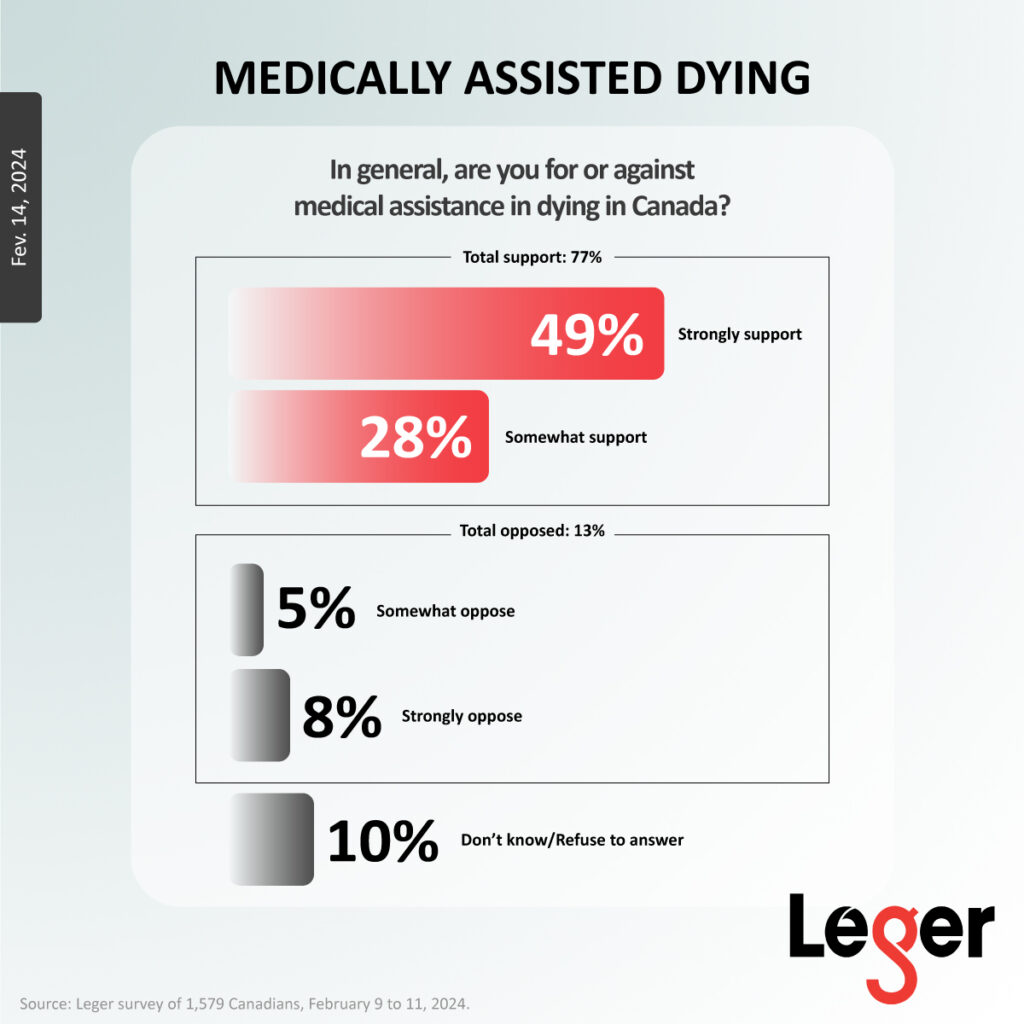The conversation around Medical Assistance in Dying (MAID) in Canada has taken center stage, reflecting a pivotal shift in our societal approach to end-of-life care. This complex and nuanced issue intertwines with the fabric of medical ethics, personal autonomy, and the collective societal values we hold dear. Our comprehensive report dives deep into the evolving landscape of MAID, offering insights into Canadians’ perceptions, legal frameworks, and the real-world implications of these policies on individuals and healthcare systems. From February 9 to 11, 2024, we surveyed Canadians to find out their opinion and perceptions on the Medical Assistance in Dying (MAID).
Download the report to learn more.
Some of the key highlights of our survey about Medical Assistance in Dying (MAID) in Canada include…
High Support for Medical Assistance in Dying in Canada
- Over three-quarters of Canadians (77%) support the law on medical assistance for dying in Canada. Quebecers (86%) and Canadians aged 55 and over (81%) are more likely to support it. Albertans are more likely to oppose medical assistance in dying (20% versus 13% in Canada).
- Almost two-thirds of Canadians (65%) believe that people suffering from an illness that can affect their cognitive ability should be able to make a request in advance for medical assistance in dying. This proportion is higher among Quebecers (77%) and people aged 55 and over (69%). Albertans are more likely to be against advance requests (22% versus 15% in Canada).

Medical Assistance in Dying for Mental Health Issues Only Does Not Have Majority Support
- Less than half of Canadians (42%) believe that the government should expand the law to allow individuals suffering from mental health issues only to request medical assistance in dying, against 28% who believe the opposite and 30% who are unsure. Quebecers (50%) are more likely to agree with this change in the law, and Albertans are more likely to be against it (39%).
- Nearly half of Canadians (47%) believe that the government should take its time to ensure everything is done correctly, while 37% believe that the government should not delay so that Canadians with mental illnesses can also benefit from MAID.
Methodology
This web survey was conducted from February 9 to 11, 2024, with 1,579 Canadians aged 18 or older, randomly recruited from LEO’s online panel. A margin of error cannot be associated with a non-probability sample in a panel survey. For comparison, a probability sample of 1,579 respondents would have a margin of error of ±2.46%, 19 times out of 20.
